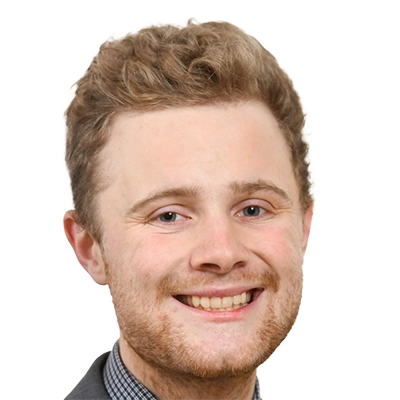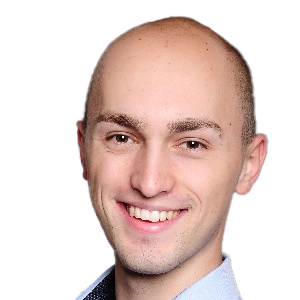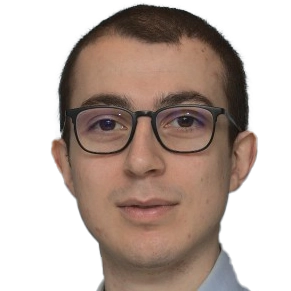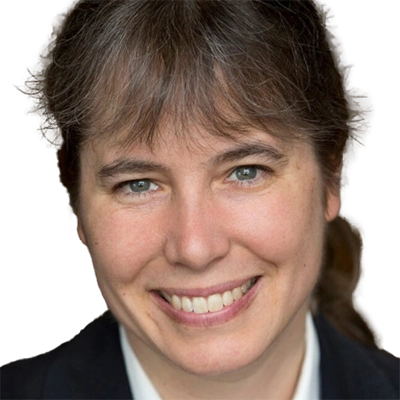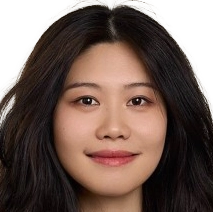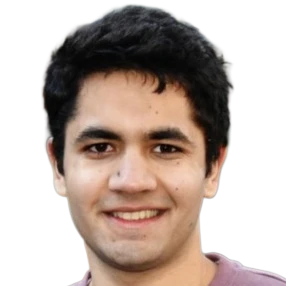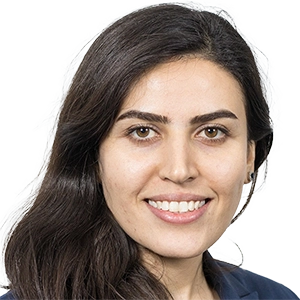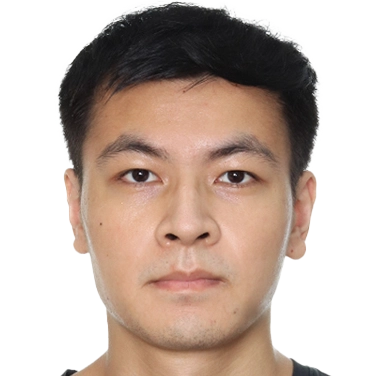05.12.2023
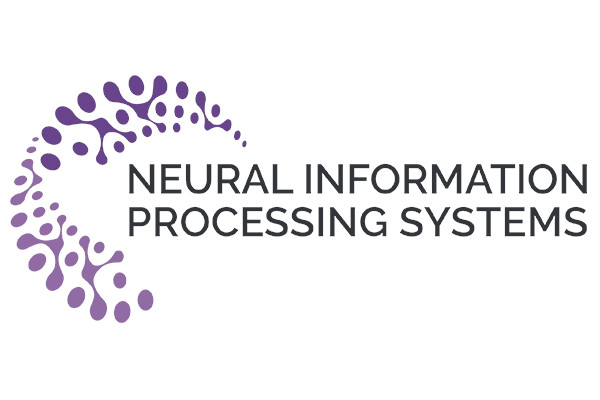
MCML Researchers With 21 Papers at NeurIPS 2023
37th Conference on Neural Information Processing Systems (NeurIPS 2023). New Orleans, LA, USA, 10.12.2023–16.12.2023
We are happy to announce that MCML researchers are represented with 21 papers at NeurIPS 2023. Congrats to our researchers!
Main Track (15 papers)
Benchmarking Robustness of Adaptation Methods on Pre-trained Vision-Language Models.
NeurIPS 2023 - 37th Conference on Neural Information Processing Systems. New Orleans, LA, USA, Dec 10-16, 2023. URL GitHub
Abstract
Various adaptation methods, such as LoRA, prompts, and adapters, have been proposed to enhance the performance of pre-trained vision-language models in specific domains. As test samples in real-world applications usually differ from adaptation data, the robustness of these adaptation methods against distribution shifts are essential. In this study, we assess the robustness of 11 widely-used adaptation methods across 4 vision-language datasets under multimodal corruptions. Concretely, we introduce 7 benchmark datasets, including 96 visual and 87 textual corruptions, to investigate the robustness of different adaptation methods, the impact of available adaptation examples, and the influence of trainable parameter size during adaptation. Our analysis reveals that: 1) Adaptation methods are more sensitive to text corruptions than visual corruptions. 2) Full fine-tuning does not consistently provide the highest robustness; instead, adapters can achieve better robustness with comparable clean performance. 3) Contrary to expectations, our findings indicate that increasing the number of adaptation data and parameters does not guarantee enhanced robustness; instead, it results in even lower robustness. We hope this study could benefit future research in the development of robust multimodal adaptation methods.
MCML Authors
Sharp Bounds for Generalized Causal Sensitivity Analysis.
NeurIPS 2023 - 37th Conference on Neural Information Processing Systems. New Orleans, LA, USA, Dec 10-16, 2023. URL
Abstract
Causal inference from observational data is crucial for many disciplines such as medicine and economics. However, sharp bounds for causal effects under relaxations of the unconfoundedness assumption (causal sensitivity analysis) are subject to ongoing research. So far, works with sharp bounds are restricted to fairly simple settings (e.g., a single binary treatment). In this paper, we propose a unified framework for causal sensitivity analysis under unobserved confounding in various settings. For this, we propose a flexible generalization of the marginal sensitivity model (MSM) and then derive sharp bounds for a large class of causal effects. This includes (conditional) average treatment effects, effects for mediation analysis and path analysis, and distributional effects. Furthermore, our sensitivity model is applicable to discrete, continuous, and time-varying treatments. It allows us to interpret the partial identification problem under unobserved confounding as a distribution shift in the latent confounders while evaluating the causal effect of interest. In the special case of a single binary treatment, our bounds for (conditional) average treatment effects coincide with recent optimality results for causal sensitivity analysis. Finally, we propose a scalable algorithm to estimate our sharp bounds from observational data.
MCML Authors
SHAP-IQ: Unified Approximation of any-order Shapley Interactions.
NeurIPS 2023 - 37th Conference on Neural Information Processing Systems. New Orleans, LA, USA, Dec 10-16, 2023. URL
Abstract
Predominately in explainable artificial intelligence (XAI) research, the Shapley value (SV) is applied to determine feature attributions for any black box model. Shapley interaction indices extend the SV to define any-order feature interactions. Defining a unique Shapley interaction index is an open research question and, so far, three definitions have been proposed, which differ by their choice of axioms. Moreover, each definition requires a specific approximation technique. Here, we propose SHAPley Interaction Quantification (SHAP-IQ), an efficient sampling-based approximator to compute Shapley interactions for arbitrary cardinal interaction indices (CII), i.e. interaction indices that satisfy the linearity, symmetry and dummy axiom. SHAP-IQ is based on a novel representation and, in contrast to existing methods, we provide theoretical guarantees for its approximation quality, as well as estimates for the variance of the point estimates. For the special case of SV, our approach reveals a novel representation of the SV and corresponds to Unbiased KernelSHAP with a greatly simplified calculation. We illustrate the computational efficiency and effectiveness by explaining language, image classification and high-dimensional synthetic models.
MCML Authors
RegBN: Batch Normalization of Multimodal Data with Regularization.
NeurIPS 2023 - 37th Conference on Neural Information Processing Systems. New Orleans, LA, USA, Dec 10-16, 2023. URL GitHub
Abstract
Recent years have witnessed a surge of interest in integrating high-dimensional data captured by multisource sensors, driven by the impressive success of neural networks in integrating multimodal data. However, the integration of heterogeneous multimodal data poses a significant challenge, as confounding effects and dependencies among such heterogeneous data sources introduce unwanted variability and bias, leading to suboptimal performance of multimodal models. Therefore, it becomes crucial to normalize the low- or high-level features extracted from data modalities before their fusion takes place. This paper introduces RegBN, a novel approach for multimodal Batch Normalization with REGularization. RegBN uses the Frobenius norm as a regularizer term to address the side effects of confounders and underlying dependencies among different data sources. The proposed method generalizes well across multiple modalities and eliminates the need for learnable parameters, simplifying training and inference. We validate the effectiveness of RegBN on eight databases from five research areas, encompassing diverse modalities such as language, audio, image, video, depth, tabular, and 3D MRI. The proposed method demonstrates broad applicability across different architectures such as multilayer perceptrons, convolutional neural networks, and vision transformers, enabling effective normalization of both low- and high-level features in multimodal neural networks.
MCML Authors
Optimal privacy guarantees for a relaxed threat model: Addressing sub-optimal adversaries in differentially private machine learning.
NeurIPS 2023 - 37th Conference on Neural Information Processing Systems. New Orleans, LA, USA, Dec 10-16, 2023. URL
Abstract
Differentially private mechanisms restrict the membership inference capabilities of powerful (optimal) adversaries against machine learning models. Such adversaries are rarely encountered in practice. In this work, we examine a more realistic threat model relaxation, where (sub-optimal) adversaries lack access to the exact model training database, but may possess related or partial data. We then formally characterise and experimentally validate adversarial membership inference capabilities in this setting in terms of hypothesis testing errors. Our work helps users to interpret the privacy properties of sensitive data processing systems under realistic threat model relaxations and choose appropriate noise levels for their use-case.
MCML Authors

Georgios Kaissis
Dr.
Associate
* Former Associate
Recovering Simultaneously Structured Data via Non-Convex Iteratively Reweighted Least Squares.
NeurIPS 2023 - 37th Conference on Neural Information Processing Systems. New Orleans, LA, USA, Dec 10-16, 2023. URL
Abstract
We propose a new algorithm for the problem of recovering data that adheres to multiple, heterogenous low-dimensional structures from linear observations. Focussing on data matrices that are simultaneously row-sparse and low-rank, we propose and analyze an iteratively reweighted least squares (IRLS) algorithm that is able to leverage both structures. In particular, it optimizes a combination of non-convex surrogates for row-sparsity and rank, a balancing of which is built into the algorithm. We prove locally quadratic convergence of the iterates to a simultaneously structured data matrix in a regime of minimal sample complexity (up to constants and a logarithmic factor), which is known to be impossible for a combination of convex surrogates. In experiments, we show that the IRLS method exhibits favorable empirical convergence, identifying simultaneously row-sparse and low-rank matrices from fewer measurements than state-of-the-art methods.
MCML Authors
A Fractional Graph Laplacian Approach to Oversmoothing.
NeurIPS 2023 - 37th Conference on Neural Information Processing Systems. New Orleans, LA, USA, Dec 10-16, 2023. URL GitHub
Abstract
Graph neural networks (GNNs) have shown state-of-the-art performances in various applications. However, GNNs often struggle to capture long-range dependencies in graphs due to oversmoothing. In this paper, we generalize the concept of oversmoothing from undirected to directed graphs. To this aim, we extend the notion of Dirichlet energy by considering a directed symmetrically normalized Laplacian. As vanilla graph convolutional networks are prone to oversmooth, we adopt a neural graph ODE framework. Specifically, we propose fractional graph Laplacian neural ODEs, which describe non-local dynamics. We prove that our approach allows propagating information between distant nodes while maintaining a low probability of long-distance jumps. Moreover, we show that our method is more flexible with respect to the convergence of the graph’s Dirichlet energy, thereby mitigating oversmoothing. We conduct extensive experiments on synthetic and real-world graphs, both directed and undirected, demonstrating our method’s versatility across diverse graph homophily levels.
MCML Authors
Partial Counterfactual Identification of Continuous Outcomes with a Curvature Sensitivity Model.
NeurIPS 2023 - 37th Conference on Neural Information Processing Systems. New Orleans, LA, USA, Dec 10-16, 2023. URL
Abstract
Counterfactual inference aims to answer retrospective ‘what if’ questions and thus belongs to the most fine-grained type of inference in Pearl’s causality ladder. Existing methods for counterfactual inference with continuous outcomes aim at point identification and thus make strong and unnatural assumptions about the underlying structural causal model. In this paper, we relax these assumptions and aim at partial counterfactual identification of continuous outcomes, i.e., when the counterfactual query resides in an ignorance interval with informative bounds. We prove that, in general, the ignorance interval of the counterfactual queries has non-informative bounds, already when functions of structural causal models are continuously differentiable. As a remedy, we propose a novel sensitivity model called Curvature Sensitivity Model. This allows us to obtain informative bounds by bounding the curvature of level sets of the functions. We further show that existing point counterfactual identification methods are special cases of our Curvature Sensitivity Model when the bound of the curvature is set to zero. We then propose an implementation of our Curvature Sensitivity Model in the form of a novel deep generative model, which we call Augmented Pseudo-Invertible Decoder. Our implementation employs (i) residual normalizing flows with (ii) variational augmentations. We empirically demonstrate the effectiveness of our Augmented Pseudo-Invertible Decoder. To the best of our knowledge, ours is the first partial identification model for Markovian structural causal models with continuous outcomes.
MCML Authors
MedSat: A Public Health Dataset for England Featuring Medical Prescriptions and Satellite Imagery.
NeurIPS 2023 - 37th Conference on Neural Information Processing Systems. New Orleans, LA, USA, Dec 10-16, 2023. URL
Abstract
As extreme weather events become more frequent, understanding their impact on human health becomes increasingly crucial. However, the utilization of Earth Observation to effectively analyze the environmental context in relation to health remains limited. This limitation is primarily due to the lack of fine-grained spatial and temporal data in public and population health studies, hindering a comprehensive understanding of health outcomes. Additionally, obtaining appropriate environmental indices across different geographical levels and timeframes poses a challenge. For the years 2019 (pre-COVID) and 2020 (COVID), we collected spatio-temporal indicators for all Lower Layer Super Output Areas in England. These indicators included: i) 111 sociodemographic features linked to health in existing literature, ii) 43 environmental point features (e.g., greenery and air pollution levels), iii) 4 seasonal composite satellite images each with 11 bands, and iv) prescription prevalence associated with five medical conditions (depression, anxiety, diabetes, hypertension, and asthma), opioids and total prescriptions. We combined these indicators into a single MEDSAT dataset, the availability of which presents an opportunity for the machine learning community to develop new techniques specific to public health. These techniques would address challenges such as handling large and complex data volumes, performing effective feature engineering on environmental and sociodemographic factors, capturing spatial and temporal dependencies in the models, addressing imbalanced data distributions, developing novel computer vision methods for health modeling based on satellite imagery, ensuring model explainability, and achieving generalization beyond the specific geographical region.
MCML Authors
Hierarchical randomized smoothing.
NeurIPS 2023 - 37th Conference on Neural Information Processing Systems. New Orleans, LA, USA, Dec 10-16, 2023. URL
Abstract
Real-world data is complex and often consists of objects that can be decomposed into multiple entities (e.g. images into pixels, graphs into interconnected nodes). Randomized smoothing is a powerful framework for making models provably robust against small changes to their inputs - by guaranteeing robustness of the majority vote when randomly adding noise before classification. Yet, certifying robustness on such complex data via randomized smoothing is challenging when adversaries do not arbitrarily perturb entire objects (e.g. images) but only a subset of their entities (e.g. pixels). As a solution, we introduce hierarchical randomized smoothing: We partially smooth objects by adding random noise only on a randomly selected subset of their entities. By adding noise in a more targeted manner than existing methods we obtain stronger robustness guarantees while maintaining high accuracy. We initialize hierarchical smoothing using different noising distributions, yielding novel robustness certificates for discrete and continuous domains. We experimentally demonstrate the importance of hierarchical smoothing in image and node classification, where it yields superior robustness-accuracy trade-offs. Overall, hierarchical smoothing is an important contribution towards models that are both - certifiably robust to perturbations and accurate.
MCML Authors
Provable Adversarial Robustness for Group Equivariant Tasks: Graphs, Point Clouds, Molecules, and More.
NeurIPS 2023 - 37th Conference on Neural Information Processing Systems. New Orleans, LA, USA, Dec 10-16, 2023. URL
Abstract
A machine learning model is traditionally considered robust if its prediction remains (almost) constant under input perturbations with small norm. However, real-world tasks like molecular property prediction or point cloud segmentation have inherent equivariances, such as rotation or permutation equivariance. In such tasks, even perturbations with large norm do not necessarily change an input’s semantic content. Furthermore, there are perturbations for which a model’s prediction explicitly needs to change. For the first time, we propose a sound notion of adversarial robustness that accounts for task equivariance. We then demonstrate that provable robustness can be achieved by (1) choosing a model that matches the task’s equivariances (2) certifying traditional adversarial robustness. Certification methods are, however, unavailable for many models, such as those with continuous equivariances. We close this gap by developing the framework of equivariance-preserving randomized smoothing, which enables architecture-agnostic certification. We additionally derive the first architecture-specific graph edit distance certificates, i.e. sound robustness guarantees for isomorphism equivariant tasks like node classification. Overall, a sound notion of robustness is an important prerequisite for future work at the intersection of robust and geometric machine learning.
MCML Authors
Reliable Off-Policy Learning for Dosage Combinations.
NeurIPS 2023 - 37th Conference on Neural Information Processing Systems. New Orleans, LA, USA, Dec 10-16, 2023. URL
Abstract
Decision-making in personalized medicine such as cancer therapy or critical care must often make choices for dosage combinations, i.e., multiple continuous treatments. Existing work for this task has modeled the effect of multiple treatments independently, while estimating the joint effect has received little attention but comes with non-trivial challenges. In this paper, we propose a novel method for reliable off-policy learning for dosage combinations. Our method proceeds along three steps: (1) We develop a tailored neural network that estimates the individualized dose-response function while accounting for the joint effect of multiple dependent dosages. (2) We estimate the generalized propensity score using conditional normalizing flows in order to detect regions with limited overlap in the shared covariate-treatment space. (3) We present a gradient-based learning algorithm to find the optimal, individualized dosage combinations. Here, we ensure reliable estimation of the policy value by avoiding regions with limited overlap. We finally perform an extensive evaluation of our method to show its effectiveness. To the best of our knowledge, ours is the first work to provide a method for reliable off-policy learning for optimal dosage combinations.
MCML Authors
Neural (Tangent Kernel) Collapse.
NeurIPS 2023 - 37th Conference on Neural Information Processing Systems. New Orleans, LA, USA, Dec 10-16, 2023. URL
Abstract
This work bridges two important concepts: the Neural Tangent Kernel (NTK), which captures the evolution of deep neural networks (DNNs) during training, and the Neural Collapse (NC) phenomenon, which refers to the emergence of symmetry and structure in the last-layer features of well-trained classification DNNs. We adopt the natural assumption that the empirical NTK develops a block structure aligned with the class labels, i.e., samples within the same class have stronger correlations than samples from different classes. Under this assumption, we derive the dynamics of DNNs trained with mean squared (MSE) loss and break them into interpretable phases. Moreover, we identify an invariant that captures the essence of the dynamics, and use it to prove the emergence of NC in DNNs with block-structured NTK. We provide large-scale numerical experiments on three common DNN architectures and three benchmark datasets to support our theory.
MCML Authors
Unpaired Multi-Domain Causal Representation Learning.
NeurIPS 2023 - 37th Conference on Neural Information Processing Systems. New Orleans, LA, USA, Dec 10-16, 2023. URL
Abstract
The goal of causal representation learning is to find a representation of data that consists of causally related latent variables. We consider a setup where one has access to data from multiple domains that potentially share a causal representation. Crucially, observations in different domains are assumed to be unpaired, that is, we only observe the marginal distribution in each domain but not their joint distribution. In this paper, we give sufficient conditions for identifiability of the joint distribution and the shared causal graph in a linear setup. Identifiability holds if we can uniquely recover the joint distribution and the shared causal representation from the marginal distributions in each domain. We transform our results into a practical method to recover the shared latent causal graph.
MCML Authors
CommonScenes: Generating Commonsense 3D Indoor Scenes with Scene Graphs.
NeurIPS 2023 - 37th Conference on Neural Information Processing Systems. New Orleans, LA, USA, Dec 10-16, 2023. URL
Abstract
Controllable scene synthesis aims to create interactive environments for numerous industrial use cases. Scene graphs provide a highly suitable interface to facilitate these applications by abstracting the scene context in a compact manner. Existing methods, reliant on retrieval from extensive databases or pre-trained shape embeddings, often overlook scene-object and object-object relationships, leading to inconsistent results due to their limited generation capacity. To address this issue, we present CommonScenes, a fully generative model that converts scene graphs into corresponding controllable 3D scenes, which are semantically realistic and conform to commonsense. Our pipeline consists of two branches, one predicting the overall scene layout via a variational auto-encoder and the other generating compatible shapes via latent diffusion, capturing global scene-object and local inter-object relationships in the scene graph while preserving shape diversity. The generated scenes can be manipulated by editing the input scene graph and sampling the noise in the diffusion model. Due to the lack of a scene graph dataset offering high-quality object-level meshes with relations, we also construct SG-FRONT, enriching the off-the-shelf indoor dataset 3D-FRONT with additional scene graph labels. Extensive experiments are conducted on SG-FRONT, where CommonScenes shows clear advantages over other methods regarding generation consistency, quality, and diversity. Codes and the dataset are available on the website.
MCML Authors
Workshops (6 papers)
Towards Explanatory Model Monitoring.
XAIA 2023 @NeurIPS 2023 - Workshop XAI in Action: Past, Present, and Future Applications at the 37th Conference on Neural Information Processing Systems. New Orleans, LA, USA, Dec 10-16, 2023. URL
Abstract
Monitoring machine learning systems and efficiently recovering their reliability after performance degradation are two of the most critical issues in real-world applications. However, current monitoring strategies lack the capability to provide actionable insights answering the question of why the performance of a particular model really degraded. To address this, we propose Explanatory Performance Estimation (XPE) as a novel method that facilitates more informed model monitoring and maintenance by attributing an estimated performance change to interpretable input features. We demonstrate the superiority of our approach compared to natural baselines on different data sets. We also discuss how the generated results lead to valuable insights that can reveal potential root causes for model deterioration and guide toward actionable countermeasures.
MCML Authors
GenTKG: Generative Forecasting on Temporal Knowledge Graph.
TGL 2023 @NeurIPS 2023 - Workshop Temporal Graph Learning at the 37th Conference on Neural Information Processing Systems. New Orleans, LA, USA, Dec 10-16, 2023. URL
Abstract
The rapid advancements in large language models (LLMs) have ignited interest in the realm of the temporal knowledge graph (TKG) domain, where conventional carefully designed embedding-based and rule-based models dominate. The question remains open of whether pre-trained LLMs can understand structured temporal relational data and replace them as the foundation model for temporal relational forecasting. Therefore, we bring temporal knowledge forecasting into the generative setting. However, challenges occur in the huge chasms between complex graph data structure and sequential natural expressions LLMs can handle, and between the enormous data volume of TKGs and heavy computation costs of finetuning LLMs. To address these challenges, we propose a novel retrieval augmented generation framework named GenTKG combining a temporal logical rule-based retrieval strategy and lightweight few-shot parameter-efficient instruction tuning to solve the above challenges. Extensive experiments have shown that GenTKG is a simple but effective, efficient, and generalizable approach that outperforms conventional methods on temporal relational forecasting with extremely limited computation. Our work opens a new frontier for the temporal knowledge graph domain.
MCML Authors
From Classification to Generation: Insights into Crosslingual Retrieval Augmented ICL.
Instruction Tuning and Instruction Following @NeurIPS 2023 - Workshop Instruction Tuning and Instruction Following at the 37th Conference on Neural Information Processing Systems. New Orleans, LA, USA, Dec 10-16, 2023. URL
Abstract
The remarkable ability of Large Language Models (LLMs) to understand and follow instructions has sometimes been limited by their in-context learning (ICL) performance in low-resource languages. To address this, we introduce a novel approach that leverages cross-lingual retrieval-augmented in-context learning (CREA-ICL). By extracting semantically similar prompts from high-resource languages, we aim to bolster the zero-shot performance of multilingual pretrained language models (MPLMs) across diverse tasks. Though our approach yields steady improvements in classification tasks, it faces challenges in generation tasks, with Bangla serving as a key case study. Our evaluation offers insights into the performance dynamics of retrieval-augmented in-context learning across both classification and generation domains.
MCML Authors

Sheng Liang
* Former Member
Are Spiking Neural Networks more expressive than Artificial Neural Networks?
UniReps @NeurIPS 2023 - 1st Workshop on Unifying Representations in Neural Models at the 37th Conference on Neural Information Processing Systems. New Orleans, LA, USA, Dec 10-16, 2023. URL
Abstract
This article studies the expressive power of spiking neural networks with firing-time-based information encoding, highlighting their potential for future energy-efficient AI applications when deployed on neuromorphic hardware. The computational power of a network of spiking neurons has already been studied via their capability of approximating any continuous function. By using the Spike Response Model as a mathematical model of a spiking neuron and assuming a linear response function, we delve deeper into this analysis and prove that spiking neural networks generate continuous piecewise linear mappings. We also show that they can emulate any multi-layer (ReLU) neural network with similar complexity. Furthermore, we prove that the maximum number of linear regions generated by a spiking neuron scales exponentially with respect to the input dimension, a characteristic that distinguishes it significantly from an artificial (ReLU) neuron. Our results further extend the understanding of the approximation properties of spiking neural networks and open up new avenues where spiking neural networks can be deployed instead of artificial neural networks without any performance loss.
MCML Authors
AttributionLab: Faithfulness of Feature Attribution Under Controllable Environments.
XAIA 2023 @NeurIPS 2023 - Workshop XAI in Action: Past, Present, and Future Applications at the 37th Conference on Neural Information Processing Systems. New Orleans, LA, USA, Dec 10-16, 2023. URL
Abstract
Feature attribution explains neural network outputs by identifying relevant input features. How do we know if the identified features are indeed relevant to the network? This notion is referred to as faithfulness, an essential property that reflects the alignment between the identified (attributed) features and the features used by the model. One recent trend to test faithfulness is to design the data such that we know which input features are relevant to the label and then train a model on the designed data. Subsequently, the identified features are evaluated by comparing them with these designed ground truth features. However, this idea has the underlying assumption that the neural network learns to use all and only these designed features, while there is no guarantee that the learning process trains the network in this way. In this paper, we solve this missing link by explicitly designing the neural network by manually setting its weights, along with designing data, so we know precisely which input features in the dataset are relevant to the designed network. Thus, we can test faithfulness in AttributionLab, our designed synthetic environment, which serves as a sanity check and is effective in filtering out attribution methods. If an attribution method is not faithful in a simple controlled environment, it can be unreliable in more complex scenarios. Furthermore, the AttributionLab environment serves as a laboratory for controlled experiments through which we can study feature attribution methods, identify issues, and suggest potential improvements.
MCML Authors
LoHoRavens: A Long-Horizon Language-Conditioned Benchmark for Robotic Tabletop Manipulation.
Robot Learning @NeurIPS 2023 - 6th Robot Learning Workshop: Pretraining, Fine-Tuning, and Generalization with Large Scale Models at the 37th Conference on Neural Information Processing Systems. New Orleans, LA, USA, Dec 10-16, 2023. URL
Abstract
The convergence of embodied agents and large language models (LLMs) has brought significant advancements to embodied instruction following.Particularly, the strong reasoning capabilities of LLMs make it possible for robots to perform long-horizon tasks without expensive annotated demonstrations.However, public benchmarks for testing the long-horizon reasoning capabilities of language-conditioned robots in various scenarios are still missing. To fill this gap, this work focuses on the tabletopmanipulation task and releases a simulation benchmark,textit{LoHoRavens}, which covers various long-horizonreasoning aspects spanning color, size, space, arithmeticsand reference.Furthermore, there is a key modality bridging problem forlong-horizon manipulation tasks with LLMs: how toincorporate the observation feedback during robot executionfor the LLM’s closed-loop planning, which is however less studied by prior work. We investigate two methods of bridging the modality gap: caption generation and learnable interface for incorporating explicit and implicit observation feedback to the LLM, respectively.These methods serve as the two baselines for our proposed benchmark. Experiments show that both methods struggle to solve most tasks, indicating long-horizon manipulation tasks are still challenging for current popular models.We expect the proposed public benchmark and baselines can help the community develop better models for long-horizon tabletop manipulation tasks.
MCML Authors

Lütfi Kerem Senel
Dr.
* Former Member
Related
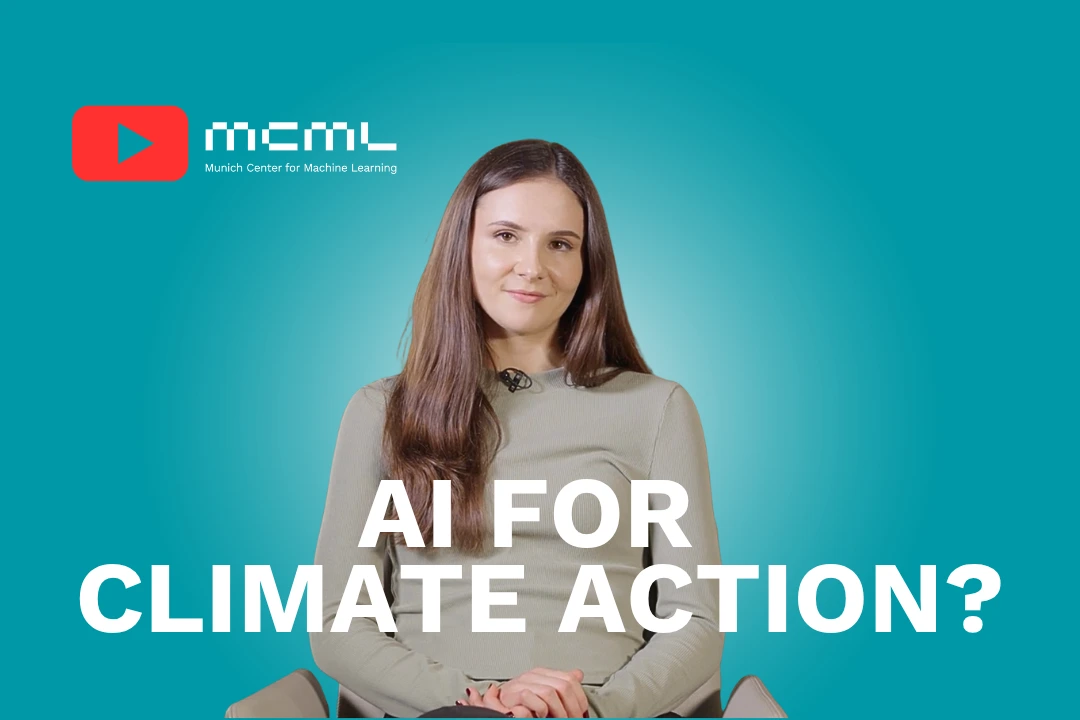
29.09.2025
Machine Learning for Climate Action - With Researcher Kerstin Forster
Kerstin Forster researches how AI can cut emissions, boost renewable energy, and drive corporate sustainability.

26.09.2025
Björn Ommer Featured in WELT
MCML PI Björn Ommer told WELT that AI can never be entirely neutral and that human judgment remains essential.

25.09.2025
Björn Schuller Featured in Macwelt Article
MCML PI Björn Schuller discusses in Macwelt how Apple Watch monitors health, detects subtle changes, and supports early intervention.

24.09.2025
MCML PI Björn Ommer Featured on ZDF NANO Talk
MCML PIs Björn Ommer & Alena Buyx discuss AI’s essence on ZDF NANO Talk, covering tech, ethics, and societal impact.




